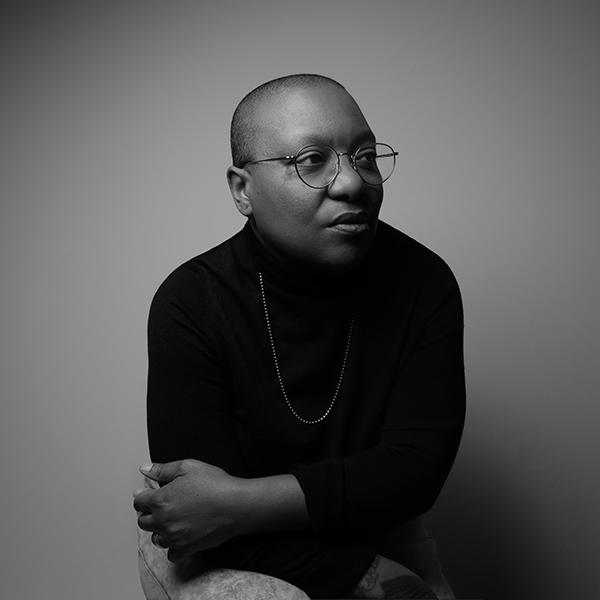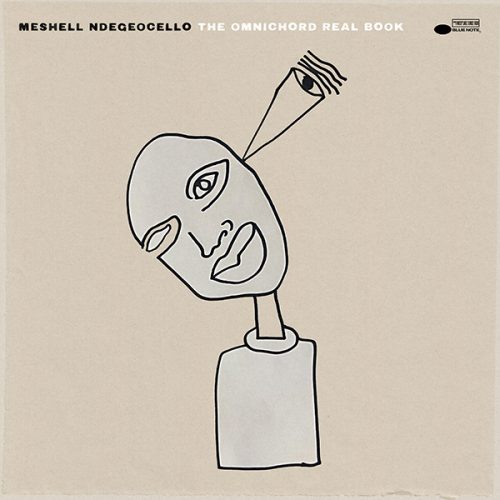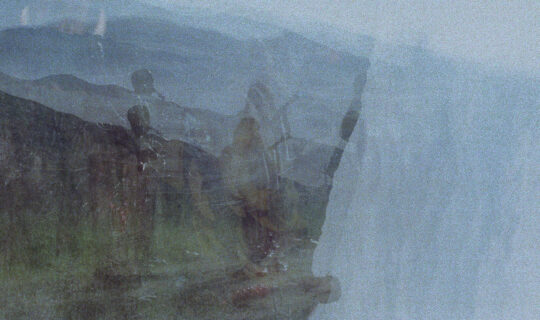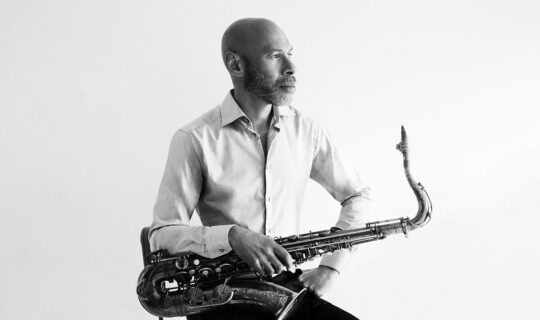June 16, 2023
Acclaimed GRAMMY-winning multi-instrumentalist, singer, songwriter, and producer Meshell Ndegeocello makes her Blue Note Records debut with The Omnichord Real Book, a visionary and deeply jazz-influenced album that marks the start of a new chapter in her trailblazing and unpredictable career. Following her 2018 covers album Ventriloquism, Meshell returns with an album of new original material that taps into a broad spectrum of her musical roots.
Produced by saxophonist Josh Johnson, the album showcases some of Ndegeocello’s frequent collaborators including Johnson, keyboardist Jebin Bruni, guitarist Chris Bruce, and drummers Abe Rounds and Deantoni Parks. Also appearing on various songs are an amazing cast of musicians that includes guitarist Jeff Parker, vibraphonist Joel Ross, trumpeter Ambrose Akinmusire, harpist Brandee Younger, drummer Mark Guiliana, bassist Burniss Travis II, keyboardists Julius Rodriguez, Corey Henry, and Jason Moran, and vocalists Joan As Police Woman, Sanford Biggers, Hanna Benn, Thandiswa, and the HawtPlates (Justin Hicks, Kenita-Miller Hicks, and Jade Hicks).
Ndegeocello says that she tries to create music that musicians enjoy playing and that’s open enough so that they can truly explore the music’s rhythmic, harmonic, and melodic contours. “I really love the musical interaction – the playing off of each other,” she says. “It’s such a divine experience. Playing music is one of the few spaces where I feel genderless and raceless. And when the audience can dance, move, and experience transcendence while we are playing live, it feels like I have purpose.”
The album’s title derives, in part, from the Omnichord, an electronic instrument that produces an intriguing harp-like chiming timbre. Bruce gave an Omnichord to Ndegeocello as a gift during the pandemic while she was busy working on several television scores while in isolation. Composing so much on the computer, however, began taking its toll.
“I found that working on the computer started bringing my spirits down,” Ndegeocello explains. “The Omnichord gave me a way to work out melodies and ideas without having to look at a screen. I’ve been working on computers since my fourth record. I wanted to stop looking at the music and just play and hear the music.”
The sound of the Omnichord opens the album with “Georgia Ave,” a sonic homage to a main thoroughfare that runs north-south through Washington D.C. Many popular Black-owned businesses and restaurants dot the popular street as does the campus of Howard University. The song itself bounces with a stomping beat that alludes to go-go, the District’s indigenous music, as swarming organ riffs, percolating percussion, and West African-flavored guitar lines coalesce, perfectly articulating the African diasporic vibe that typifies Georgia Avenue. Ndegeocello also plays the Omnichord on the dreamy “An Invitation” and the Afrobeat-laced instrumental “Omnipuss.”
Those three songs show Ndegeocello adding new textures and colors to her expansive palette; they also illustrate her ingenuity with the instrument as she strums alluring melodies that accentuate the ruminative tenor of many of the album’s initial songs, which also include the enigmatic “Call The Tune” featuring Benn’s heavenly multi-tracked vocal harmonies, and the haunting “Good, Good,” on which Ndegeocello engages in some brilliant vocal antiphonic play with Jade Hicks amidst a shimmering bucolic soundscape.
The passing of Ndegeocello’s parents, Jacques and Helen Johnson, also underpins The Omnichord Real Book. When she started playing bass in various go-go and funk bands while attending D.C.’s Duke Ellington School of the Arts, her saxophone-playing father gave her a copy of The Real Book so that she could join him on some of his gigs.
While there is undoubtedly sadness in losing her parents, Ndegeocello does not shy away from some of the more challenging aspects of living under the weight of parental expectations of who they wanted her to be – both professionally and personally. In the aftermath of their passings, she confronted a simmering existential crisis.
“My parents are no longer there for me to direct my disenchantment at life at,” Ndegeocello says. “They are no longer there for me in some hopes of reconciliation; they are no longer there for me to worry about. So now, I have to be really present in my life.”
With that realization, Ndegeocello goes on to say, “with this record, I’m moving from the dogma of religion, my parents, the American dream, and politics. I’m also moving from the musical dogma set on myself, which was that I am supposed to be funky, soulful, political, and all the other things all of the time. If this is my last project, I feel like it is the most authentic thing I have to offer.”
Ndegeocello articulates that quixotic spirit spectacularly on the album’s lead single, “Virgo,” a transcendental, Afro-futuristic jam on which her introspective musings, touching on spiritual rebirth, soar through a celestial groove highlighted by Younger’s gentle harp accompaniment, thumping drumming, ticking rhythmic guitar riffs, dubby bass, and Rodriguez’s hypnotic Farfisa organ. Ndegeocello wrote the song when she was working with director Charlotte Brathwaite and they talked about the need to create new myths about their African ancestry.
In “Virgo,” Ndegeocello sings from the perspective of someone jumping off a transatlantic slave ship, and in their transition, their spirits travel across the ocean. “In this song, I’m wondering what I could have been,” she explains. “Where do I come from? What happened? To whom do I belong? I will long for those answers for the rest of my life. Those spirits who jumped off those slave ships are my ancestors in my mind. I had to create a new myth about my ancestors in much the same way that Sun Ra often talked about.”
The Omnichord Real Book contains other soul-searching songs such as the Sly Stone-inspired “Clear Water,” which features Parker delivering bluesy guitar counterpart lines; “ASR,” a sweeping Afrobeat-driven piece that also features Parker’s enchanting guitar accompaniment; “Perceptions,” a tender reverie featuring Moran’s plaintive piano; “Hole in the Bucket,” a gospel-drenched piece that features Justin Hicks singing lead; “Towers,” a shuffling ballad featuring Ross’ vibraphone; “Gatsby,” a gentle ballad written by Samora Pinderhughes that features additional vocals by Joan As Police Woman as well as Henry on piano; “Vuma,” a propulsive ode to the power of the human voice featuring South African vocalist Thandiswa and Ross on marimba; and “Burn Progression,” an avant-funk groove featuring Akinmusire.
Ndegeocello explains that “Burn Progression” and the sweeping soul-psychedelic evocation “The 5th Dimension,” featuring the HawtPlates, were inspired in part by Questlove’s award-winning documentary, Summer of Soul. “Watching that movie was life-changing for me,” she says. “it made me want to go back to that vocal group. But because that historic moment was kept from us for so long, it also sometimes makes me want to watch America burn.”
Ndegeocello’s burning reference evokes James Baldwin’s classic 1963 socio-political book, The Fire Next Time, on which he examined race relations in the U.S during the civil rights movement. It also hints at Ndegeocello’ s next Blue Note Records project…







